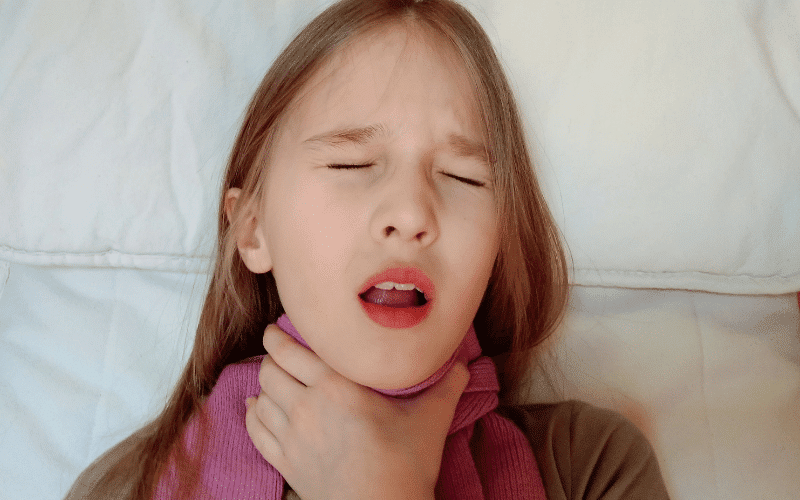Symptom 3: The Sound Shift: Dealing with Voice Changes

The joy of hearing a child’s laughter or their excited chatter is priceless. But what if the voice that once filled your home with joy now sounds different? Changes in a child’s voice, or hoarseness, could be a symptom of thyroid cancer. It’s a warning sign, a red flag that should not be ignored.
Located just below the voice box (larynx), the thyroid gland could affect it if a tumor develops. The voice changes can be subtle and may not be immediately evident. This symptom is often described as a roughness in the voice, a harshness that wasn’t there before, or even the loss of voice at times.
Voice changes due to thyroid cancer are not typical puberty-induced changes. Unlike the deepening of a boy’s voice or the slight change in a girl’s voice during adolescence, these changes are uncharacteristic and not age-appropriate. They are the body’s SOS signals, drawing attention to a possible issue with the thyroid gland.
This symptom often ties in with other signs like difficulty swallowing or breathing. It’s a piece of the puzzle, one that fits in with other symptoms to form the bigger picture of thyroid cancer. It’s not a symptom to be taken lightly.
Remember, hoarseness due to thyroid cancer is not a passing phase. It’s persistent and does not get better over time. A child might not be able to express their discomfort accurately, so noticing such changes and seeking further evaluation is crucial. It could potentially be a significant step towards early detection and successful treatment of thyroid cancer. (3)